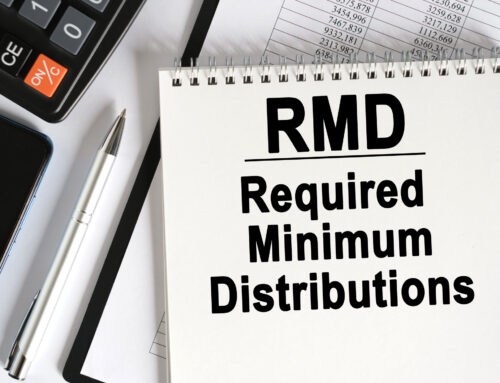
If you have a financial plan in place, you may think you’re set. However, the rules of retirement are always subject to change. We’ve seen new retirement legislation in the last few years and could see more soon. It’s important to understand how you could be affected and think about how you will respond.
The End of the “Stretch IRA”
The first SECURE Act, passed in 2019, changed the rules for inherited retirement accounts: Instead of allowing those who inherit 401(k)s or IRAs to “stretch” distributions over their lifetime, they now must empty the account within 10 years of the original owner’s death. There are some exceptions, including spouses who inherit accounts. Recently, the rule was clarified to state that those who inherit accounts must take out a required amount each year, as opposed to waiting until year 10.[1] The end of the stretch IRA and this latest requirement could mean that you need to revise your financial plan if you have an inherited retirement account, as well as your estate plan if you want to pass on a retirement account.
The SECURE Act 2.0
We could see a SECURE Act 2.0 pass in Congress soon. It would include many changes, such as raising the catch-up contribution limit for retirement accounts. Those between 62 and 64 would be able to contribute an additional $10,000 to their 401(k) and 403(b), and an extra $5,000 to a SIMPLE plan. It would also index the IRA contribution limit to inflation and increase the age at which Required Minimum Distributions (RMDs) start from 72 to 75 by 2032. It would make it easier to buy annuities by easing technical RMD requirements for annuity options.[2] If we see this legislation passed, it will be important to know how you’re affected and what opportunities you may be able to take advantage of.
The Expiration of the Tax Cuts and Jobs Act
Estimating your tax burden in retirement can be difficult when the tax code is always subject to change. When the Tax Cuts and Jobs Act expires at the end of 2025, your tax situation could change significantly. Unless new legislation is enacted, the standard deduction will return to $6,350 for individuals and $12,700 for married couples filing jointly. Many rules regarding itemized deductions will change back to what they were before the Tax Cuts and Jobs Act was passed.[3] We could see higher taxes in the coming years, so be prepared to plan for the tax rates of the future.
Retirement has changed and will continue to change in your lifetime. Americans are spending more time and money in retirement, and it’s important to plan for this. At Epstein & White, we can help you create a comprehensive financial plan and adapt it as we see these changes and any others in the future. Click here to sign up for a time to get your retirement planning questions answered.
[2] https://www.kiplinger.com/retirement/retirement-plans/602821/secure-act-2
[3] https://www.investopedia.com/taxes/trumps-tax-reform-plan-explained/
Please Note: Epstein & White is a tradename. All services provided by Epstein & White investment professionals are provided in their individual capacities as investment adviser representatives of Mercer Global Advisors Inc. (“Mercer Advisors”), an SEC registered investment adviser principally located in Denver, Colorado, with various branch offices throughout the United States doing business under different tradenames, including Epstein & White. Information contained herein is for informational and illustrative purposes only and general in nature. It should not be considered investment advice or a recommendation to buy or sell any type of securities or insurance products and no investment decision should be made based solely on any information provided herein. We provide this information with the understanding that we are not engaged in rendering legal, accounting, or tax services. We recommend that all investors seek out the services of competent professionals in any of the aforementioned areas.
Investment in securities carries a risk of loss, including loss of principal amount invested. Different types of investments involve varying degrees of risk. It should not be assumed that diversification or asset allocation protects a portfolio from loss or that such will produce profitable results. An annuity’s guarantee is subject to the claims-paying ability of the issuing insurance company.




